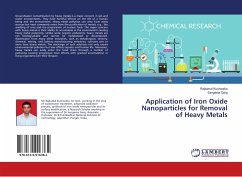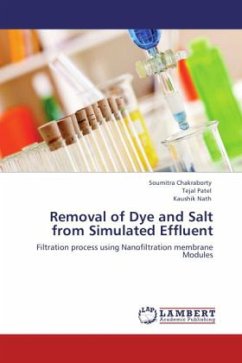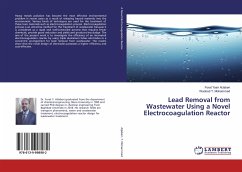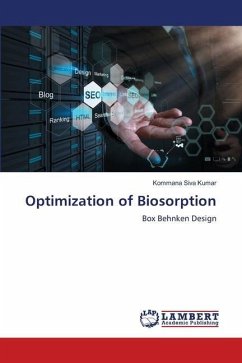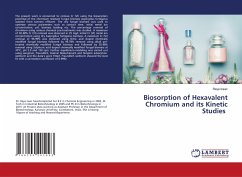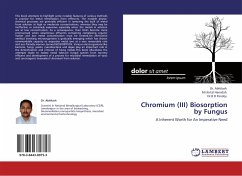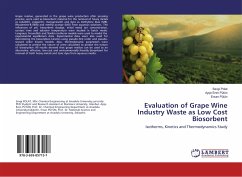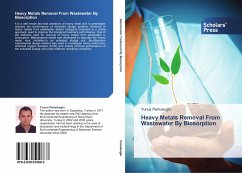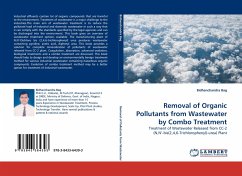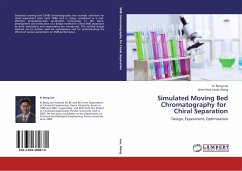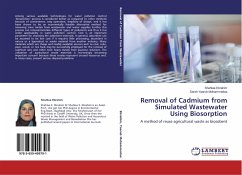
Removal of Cadmium from Simulated Wastewater Using Biosorption
A method of reuse agricultural waste as biosobent
Versandkostenfrei!
Versandfertig in 6-10 Tagen
27,99 €
inkl. MwSt.

PAYBACK Punkte
14 °P sammeln!
Among various available technologies for water pollution control biosorption process is considered better as compared to other methods because of convenience, easy operation, simplicity of design, and it has been shown to be an economically feasible alternative method for removing trace metals from wastewater and water supplies. Further this process can remove/minimize different types of pollutants and thus it has wider applicability in water pollution control. Cost is an important parameter for choosing the adsorbent materials. In general, adsorbent can be assumed to be low cost if it require...
Among various available technologies for water pollution control biosorption process is considered better as compared to other methods because of convenience, easy operation, simplicity of design, and it has been shown to be an economically feasible alternative method for removing trace metals from wastewater and water supplies. Further this process can remove/minimize different types of pollutants and thus it has wider applicability in water pollution control. Cost is an important parameter for choosing the adsorbent materials. In general, adsorbent can be assumed to be low cost if it requires little processing, abundant in nature or a byproduct or waste material from another industry. Many materials which are cheap and readily available sources such as coal, coke, peat, wood, or rice husk may be successfully employed for the removal of cadmium ions and other toxic heavy metals from aqueous solutions. The utilization of agricultural waste materials is increasingly becoming important concern because these wastes represent unused resources and, in many cases, present serious disposal problems.



